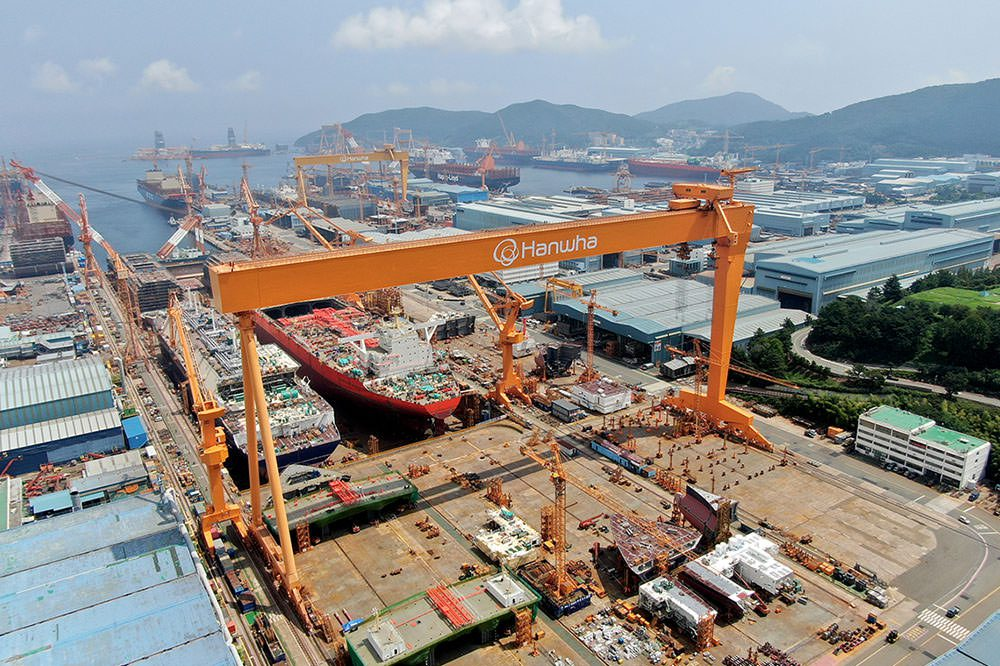Although the Jones Act, which prohibits foreign vessels from sailing in the United States, has not yet been repealed, Hanwha Ocean, which is seeking to expand its presence in the U.S. market, plans to use the existing system to intensify its offensive in the U.S. market in advance.

Hanwha Ocean’s US subsidiary plans to reflag LNG carriers built at Korean shipyards under the US flag. This move means that LNG carriers built in Korea will enjoy the same status as vessels built in the US.
Recently, Hanwha Shipping, a U.S. shipping subsidiary of Hanwha Ocean, stated, “We will begin the process of changing the flag of Hanwha Ocean’s LNG carrier according to the US Coast Guard’s schedule and are currently conducting the technical review required for the flag change. The company will ensure compliance with international agreements and classification society regulations under the US Coast Guard’s Alternative Compliance Program (a certification system that allows vessels to operate in the US).”
“Reflagging” refers to the system in the United States that allows vessels built overseas to change their nationality and be registered under the U.S. flag. Even ships constructed in other countries can be registered as U.S.-flagged and put into operation through this process. Hanwha Ocean is eligible for vessel registration due to its ownership of the shipping subsidiary Hanwha Shipping in the United States, thus being permitted to undergo flagging.
Hanwha Shipping said: “reflagging is aimed at supporting the U.S. government’s marine time dominance policy and will provide strategic opportunities centered on LNG carriers designated by the U.S. government.”
South Korean media reported that South Korean shipbuilders previously believed that there was little need to convert domestically built vessels to US registration. However, with the Trump administration inviting South Korea to revive its shipbuilding industry, changing ship registration has become a direct response to this invitation, and Hanwha Ocean has therefore decided to take proactive action.
South Korean media reported that South Korean shipbuilders previously believed that there was little need to convert domestically built vessels to US registration. However, with the Trump administration inviting South Korea to revive its shipbuilding industry, changing ship registration has become a direct response to this invitation, and Hanwha Ocean has therefore decided to take positive action.
Against this backdrop, the U.S. Coast Guard issued regulations in May this year to simplify the flag change procedure, viewing it as “the first effort to restore U.S. maritime dominance.” Of course, even if the flag is changed to the U.S., there are restrictions that limit the vessel to international voyages. In fact, voyages between ports within the U.S. are limited to ships that were built locally and are owned by U.S. citizens.
However, if the Jones Act Repeal Act (U.S. Waters Open Act) proposed by the U.S. Congress is passed, vessels built overseas will also be allowed to navigate within U.S. waters. The Jones Act has long been regarded as the main obstacle hindering South Korean shipbuilding enterprises from entering the U.S. market.
There is a view in the Korean industry that due to opposition from U.S. stakeholders, it may take quite a long time to actually repeal the Jones Act. A person in the shipbuilding industry explained: “Due to the growing opposition to protecting U.S. jobs and the economy, repealing the Jones Act may face difficulties in reality.”
In addition, there are currently difficulties in building ships directly in the U.S. Hanwha Ocean completed the acquisition of a shipyard in Philadelphia last December and renamed it Hanwha Philly Shipyard, marking the first acquisition of a U.S. shipyard by a South Korean shipbuilding company. However, the Philly Shipyard is considered to have outdated facilities, as it takes an average of 18 months to build a ship due to the aging of its facilities.


